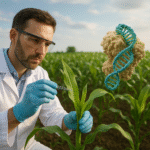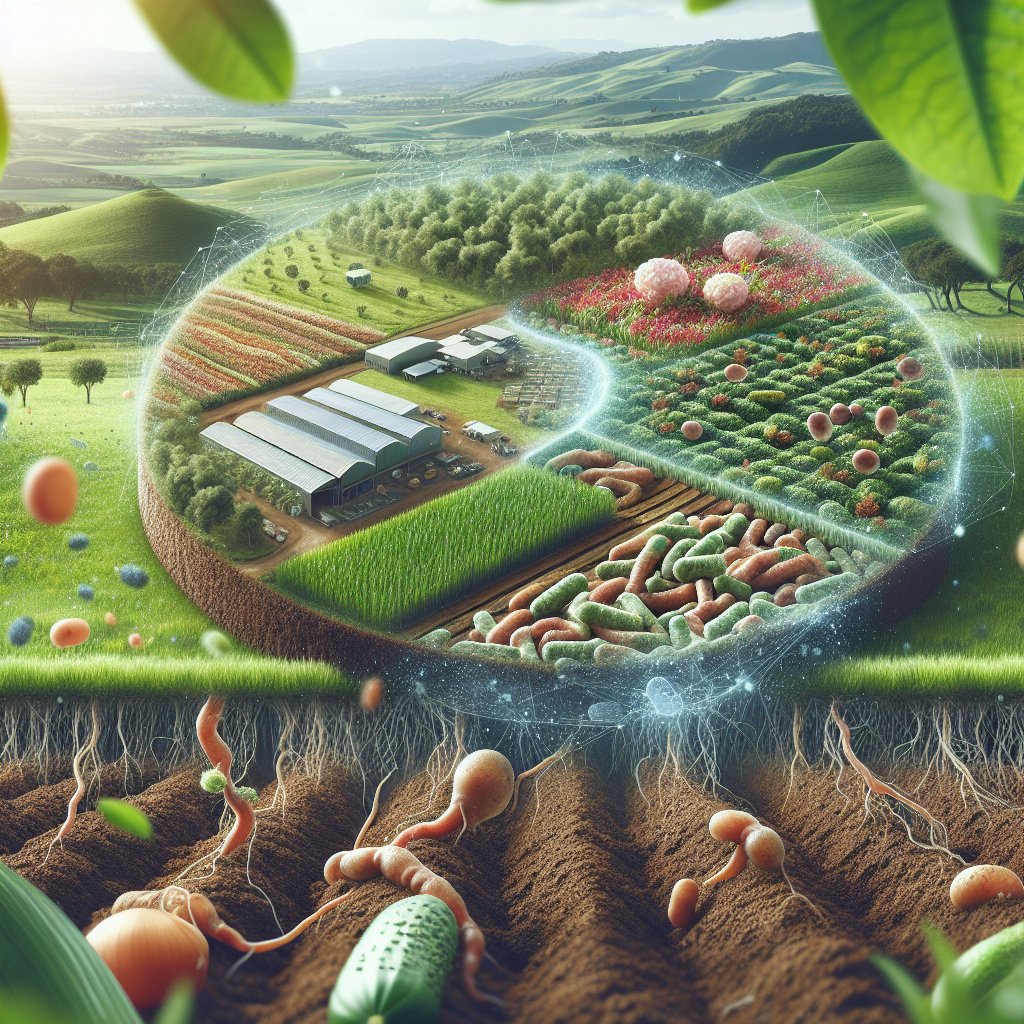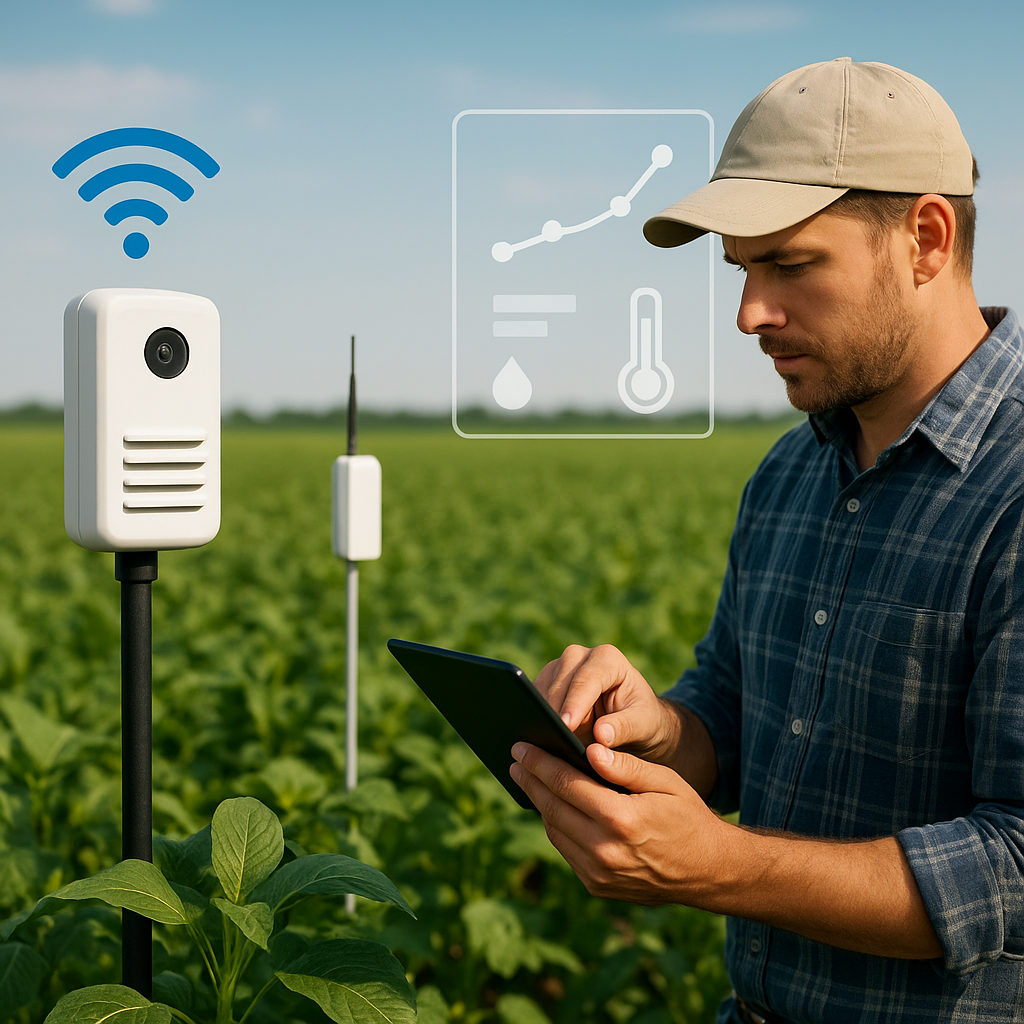Microbes play a crucial role in enhancing soil health and crop growth, acting as unseen allies in the agricultural world. These microscopic organisms, including bacteria, fungi, and archaea, contribute significantly to nutrient cycling, disease suppression, and overall soil fertility. Understanding and harnessing the power of microbes can lead to more sustainable and productive farming practices.
The Importance of Soil Microbes
Soil microbes are essential for maintaining soil structure and fertility. They decompose organic matter, releasing nutrients that plants can absorb. This process, known as mineralization, is vital for the nutrient cycle. Without microbes, essential elements like nitrogen, phosphorus, and potassium would remain locked in organic matter, unavailable to plants.
Microbes also play a role in forming soil aggregates, which improve soil structure and porosity. This enhances water infiltration and retention, reducing erosion and promoting root growth. Additionally, certain microbes produce substances that bind soil particles together, further stabilizing the soil.
Nutrient Cycling and Availability
One of the most critical functions of soil microbes is nutrient cycling. Microbes break down complex organic compounds into simpler forms that plants can use. For example, nitrogen-fixing bacteria convert atmospheric nitrogen into ammonia, a form of nitrogen that plants can absorb. This process is essential for plant growth, as nitrogen is a key component of proteins, nucleic acids, and chlorophyll.
Phosphorus is another vital nutrient that microbes help make available to plants. Mycorrhizal fungi form symbiotic relationships with plant roots, extending their hyphae into the soil to access phosphorus that plants cannot reach on their own. In return, the plants provide the fungi with carbohydrates produced through photosynthesis.
Suppressing Soil-Borne Diseases
Soil microbes also play a crucial role in suppressing soil-borne diseases. Beneficial microbes can outcompete pathogenic organisms for resources and space, reducing the incidence of diseases. Some microbes produce antibiotics or other compounds that inhibit the growth of pathogens. For example, certain strains of Bacillus and Pseudomonas bacteria produce substances that can suppress fungal pathogens like Fusarium and Rhizoctonia.
Moreover, the presence of a diverse microbial community can enhance the resilience of the soil ecosystem. A diverse microbial population can adapt to changing conditions and provide a buffer against the proliferation of harmful organisms. This biodiversity is crucial for maintaining soil health and preventing disease outbreaks.
Microbial Inoculants and Biofertilizers
Given the significant benefits of soil microbes, researchers and farmers are increasingly turning to microbial inoculants and biofertilizers to enhance soil health and crop growth. These products contain beneficial microbes that can be introduced into the soil to boost microbial activity and improve plant health.
Types of Microbial Inoculants
There are several types of microbial inoculants, each with specific functions. Nitrogen-fixing inoculants, such as Rhizobium and Azospirillum, are used to enhance nitrogen availability in the soil. Phosphate-solubilizing bacteria, like Pseudomonas and Bacillus, help make phosphorus more accessible to plants. Mycorrhizal fungi inoculants improve nutrient uptake and enhance plant resilience to stress.
Other inoculants include plant growth-promoting rhizobacteria (PGPR), which can enhance plant growth by producing hormones, solubilizing nutrients, and suppressing pathogens. These inoculants can be applied to seeds, soil, or plant roots, depending on the specific needs of the crop and soil conditions.
Benefits of Biofertilizers
Biofertilizers offer several advantages over traditional chemical fertilizers. They are environmentally friendly, reducing the risk of soil and water pollution. Biofertilizers also improve soil health by enhancing microbial diversity and activity. This can lead to more sustainable farming practices, as healthy soils are more resilient to erosion, compaction, and nutrient depletion.
Moreover, biofertilizers can improve crop yields and quality. By enhancing nutrient availability and suppressing diseases, biofertilizers can lead to healthier, more robust plants. This can result in higher yields and better-quality produce, benefiting both farmers and consumers.
Challenges and Future Directions
While the benefits of soil microbes are well-documented, there are still challenges to overcome in harnessing their full potential. One of the main challenges is the variability of microbial communities in different soils. Factors such as soil type, climate, and crop management practices can influence microbial populations and their functions. This variability makes it challenging to develop standardized microbial inoculants that work effectively in all conditions.
Research and Development
Ongoing research is crucial for understanding the complex interactions between soil microbes, plants, and the environment. Advances in molecular biology and genomics are providing new insights into microbial diversity and functions. These technologies can help identify beneficial microbes and understand how they interact with plants and other soil organisms.
Additionally, research is needed to develop more effective microbial inoculants and biofertilizers. This includes identifying the best strains of microbes for specific crops and soil conditions, as well as optimizing application methods. Collaboration between researchers, farmers, and industry is essential for translating scientific discoveries into practical solutions for sustainable agriculture.
Adoption and Education
Another challenge is the adoption of microbial inoculants and biofertilizers by farmers. Education and outreach are crucial for promoting the benefits of these products and encouraging their use. Farmers need access to reliable information and resources to make informed decisions about incorporating microbial products into their farming practices.
Extension services, agricultural organizations, and industry stakeholders can play a vital role in providing education and support to farmers. Demonstration projects and field trials can showcase the benefits of microbial inoculants and biofertilizers, helping to build confidence and trust in these products.
Conclusion
Soil microbes are indispensable allies in enhancing soil health and crop growth. Their roles in nutrient cycling, disease suppression, and soil structure improvement are critical for sustainable agriculture. By harnessing the power of microbes through microbial inoculants and biofertilizers, farmers can improve soil fertility, increase crop yields, and reduce environmental impacts.
However, challenges remain in understanding and utilizing soil microbes effectively. Continued research, education, and collaboration are essential for unlocking the full potential of these microscopic allies. As we move towards more sustainable farming practices, the role of soil microbes will become increasingly important in ensuring food security and environmental health.










